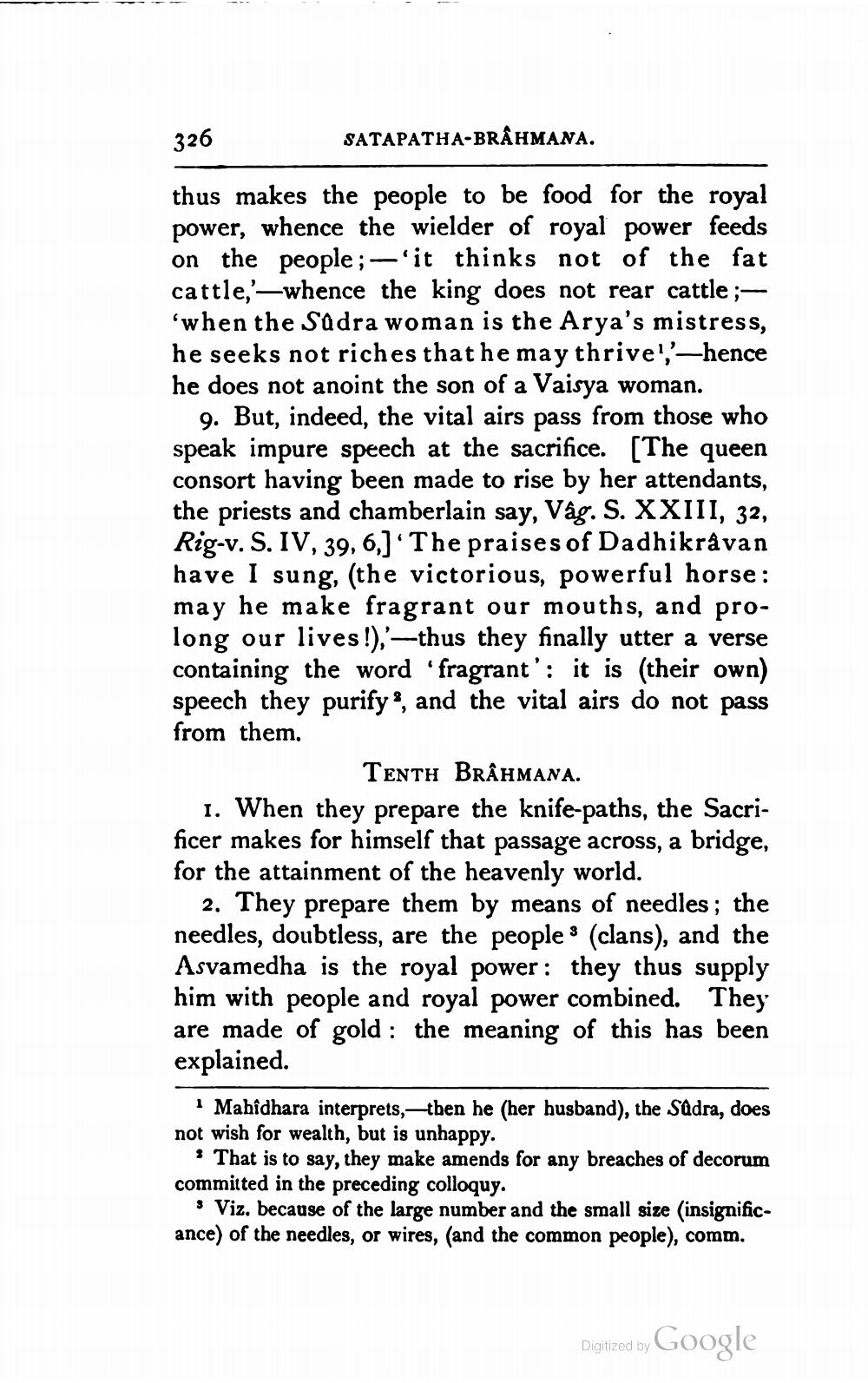________________
326
SATAPATHA-BRÂHMANA.
thus makes the people to be food for the royal power, whence the wielder of royal power feeds on the people; - 'it thinks not of the fat cattle,'—whence the king does not rear cattle ;'when the Sudra woman is the Arya's mistress, he seeks not riches that he may thrive!,'-hence he does not anoint the son of a Vaisya woman.
9. But, indeed, the vital airs pass from those who speak impure speech at the sacrifice. [The queen consort having been made to rise by her attendants, the priests and chamberlain say, Vag. S. XXIII, 32, Rig-v. S. IV, 39, 6,] The praises of Dadhikrâvan have I sung, (the victorious, powerful horse: may he make fragrant our mouths, and prolong our lives!),'--thus they finally utter a verse containing the word 'fragrant': it is (their own) speech they purify?, and the vital airs do not pass from them.
TENTH BRÂHMANA. 1. When they prepare the knife-paths, the Sacrificer makes for himself that passage across, a bridge, for the attainment of the heavenly world.
2. They prepare them by means of needles; the needles, doubtless, are the peoples (clans), and the Asvamedha is the royal power : they thus supply him with people and royal power combined. They are made of gold: the meaning of this has been explained.
Mahîdhara interprets,—then he (her husband), the Sadra, does not wish for wealth, but is unhappy.
• That is to say, they make amends for any breaches of decorum committed in the preceding colloquy.
• Viz. because of the large number and the small size (insignificance) of the needles, or wires, (and the common people), comm.
Digitized by Google




